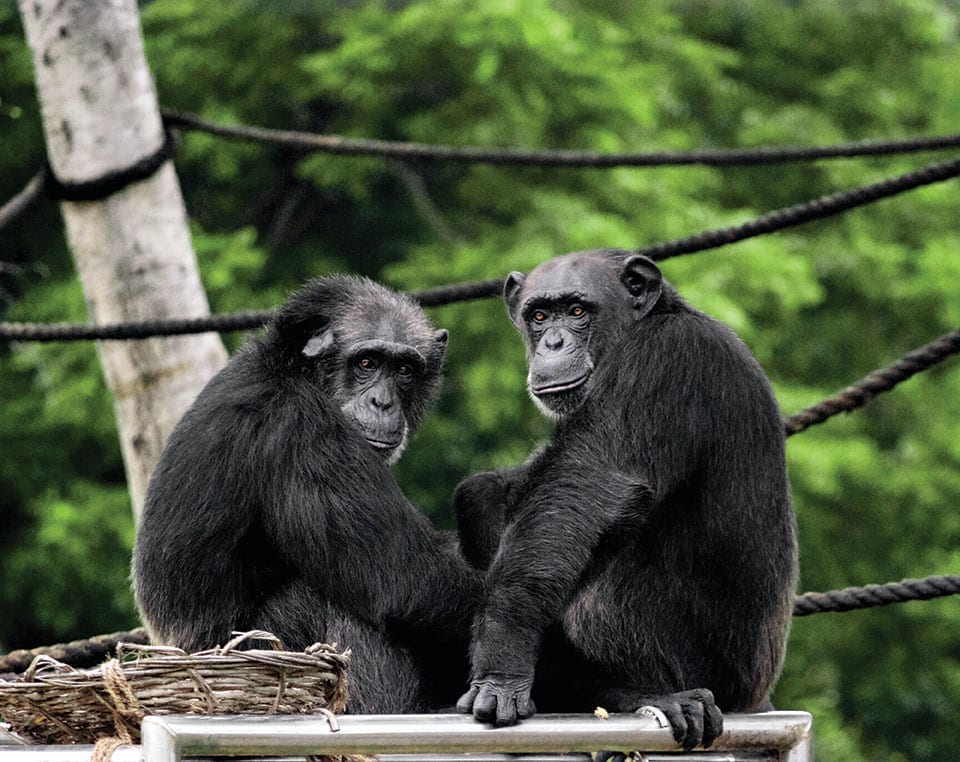
Old Friends
Socioemotional selectivity theory proposes that people shift their social behavior from a focus on forming new friends in youth to maintaining a smaller network of close, fulfilling relationships in old age.
“The proposal is that this shift happens because of our human ability to monitor our own personal time horizons — how much time we have left in our life — which causes us to prioritize emotionally fulfilling relationships when time is perceived to be running out,” says Martin Muller, associate professor of anthropology at UNM.
Then, what about other aging primates?
Muller and colleague Melissa Emery Thompson, associate professor of anthropology and co-director of the Comparative Human and Primate Physiology Center, looked to 20 years of behavioral data from the Kanyawara chimpanzee community living in Kibale National Park in Uganda for an answer.
Their study, funded by the National Institutes of Health and the National Science Foundation, found that wild chimpanzees, like humans, increasingly prioritized mutual and equitable friendships with others that invested in them as they got older. Younger adult chimps, by contrast, were more likely to form lopsided relationships where their partner did not reciprocate. Older chimpanzees also were more likely to be seen alone, but tended to socialize more with important partners when they did join the group.
There were other similarities between senior chimps and humans.
Graduate student Drew Enigk went through large numbers of aggressive interactions among the chimpanzees to see who won and lost fights, and who was submissive to whom. He then assigned dominance ranks. Just as humans do, chimps interacted in increasingly positive ways as they got older.
“A large psychological literature suggests that in humans, old age leads to a focus on existing close relationships, increased attention to and memory for positive social interactions and reduced engagement in tension and conflict,” Muller says. “When the end is near, people accentuate the positive and eliminate the negative. While that may partly be true, our data suggest that something more fundamental may be happening with the aging process.”
Assuming that wild chimpanzees, unlike humans, are not conscious of their impending mortality, shared patterns between chimpanzees and humans could represent an adaptive response where older adults focus on important social relationships that provide benefits and avoid interactions that have negative consequences as they lose competitive fighting ability.
Muller studies chimpanzee behavior and physiology to gain insight into the evolution of human behavior and physiology and believes his study may help understand how humans age.

